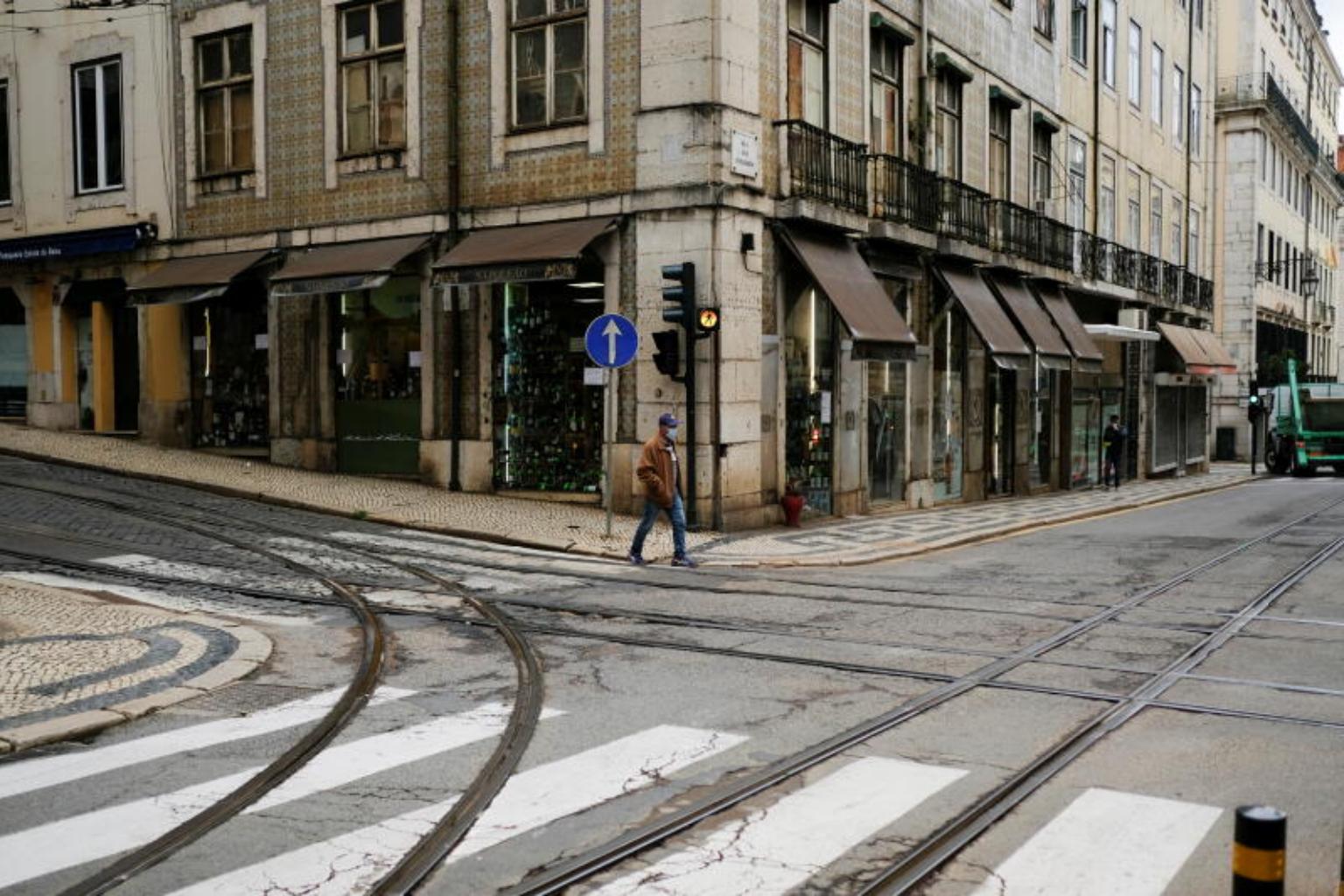Two months into Covid-19 lockdown, Portugal to gradually lift rules
Sign up now: Get ST's newsletters delivered to your inbox

Portugal reported 627 new cases and 18 deaths on March 11, 2021.
PHOTO: REUTERS
LISBON (REUTERS) - Nearly two months into a lockdown imposed in mid-January to tackle what was then the world's worst coronavirus surge, Portugal's government announced on Thursday (March 11) it would start to gradually ease its strict rules from next week.
"We can open up in a safe way but it has to be a prudent, gradual opening, bit by bit ... we don't want to increase the risk," Prime Minister Antonio Costa told a news conference. "We have to be cautious."
Kindergartens, pre-schools and primary schools will reopen on Monday, as well as hair salons, libraries and bookshops, Mr Costa said, adding that cafes' terraces, museums, and small stores will open doors on April 5.
High school and university students will be able to return to school on April 19, when cinemas, theatres and shopping malls will also reopen. Outdoor events will be allowed under capacity rules.
Restaurants can reopen on April 19 too but must close earlier. From May 3, restaurants can reopen with no time restrictions and large indoor and outdoor events can be held following capacity rules yet to be defined, Mr Costa said, warning he will not be afraid to take a step back if the situation worsens again.
The measures to ease the lockdown will be re-evaluated every 15 days, Mr Costa said.
In January, the pandemic brought the country's fragile health service to its knees but has significantly improved since then, with daily figures dropping sharply.
Portugal, a nation of just over 10 million, reported 627 new cases and 18 deaths on Thursday, bringing the total to 812,575 and 16,635 respectively.
Controls on the country's land border with Spain will remain in place until Easter and travel restrictions, such as a negative Covid-19 test at arrival or quarantine, on those coming from the United Kingdom, Brazil and South Africa, will stay in force due to the new variants of the virus.
In a presidential decree, President Marcelo Rebelo de Sousa said that although the "situation was evolving favourably ... external signs remained complex, imposing caution about the steps to be taken in the near future."
No crisis in recent history has hit Portugal's tourism-dependent economy as hard, with the country's gross domestic product shrinking 7.6 per cent last year, its biggest annual slump since 1936.


